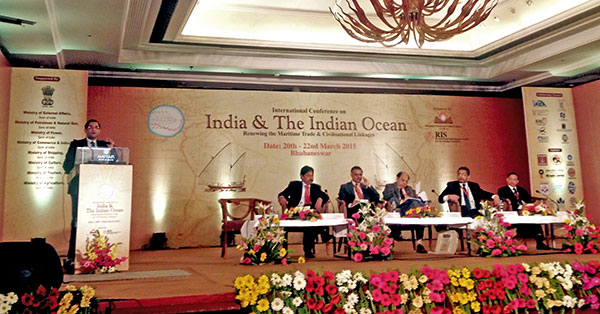Non-Tariff Barriers (NTBs) applied by Indian-Ocean Rim Association (IORA) countries are one of the main setbacks for enhancing intra-regional trade, noted CPD Additional Research Director Dr Khondaker Golam Moazzem.
He was addressing a session on “Regional Economic Cooperation in Trade and Investment in IORA” at the international conference titled “India & the Indian Ocean: Renewing the Maritime Trade & Civilisational Linkages,” held during 20-22 March 2015, in Bhubaneswar, India.

The conference, jointly organised by Institute of Social and Cultural Studies (ISCS) and Research and Information System for Developing Countries (RIS), provided an opportunity to study and analyse Indian Ocean from all the aspects and perspectives -historical, economical, geo political, cultural, energy security, religion, literature, trade, migration, diaspora, etc., and rejuvenate the deep ties that bind the regional nations.
In his presentation on “Beyond Tariff: Protectionism through Non-Tariff Barriers in IORA Countries” Dr Moazzem mentioned that IORA countries have experienced significant rise in international trade over the last decade but it has marginally increased the share of intra-regional trade.
Most countries of IORA discussed about NTBs both at bilateral and regional levels. As part of that, a number of initiatives have been undertaken at regional platforms such as ASEAN and EAC and specific activities have identified which include activities agreement for eliminating NTBs, developing work programme and forming working group on eliminating NTBs. However, all regional initiatives did not make same level of progress.
Dr Moazzem proposed that an institutional arrangement could undertake initiatives in order to address and eliminate NTBs. A committee could be set up which will acknowledge different regional initiatives on NTBs, thereby harmonise its activities and will identify new activities.
Taking support from business community, the committee could create a database on NTBs which could be used for discussion in appropriate fora for taking decision on their elimination, he added.


